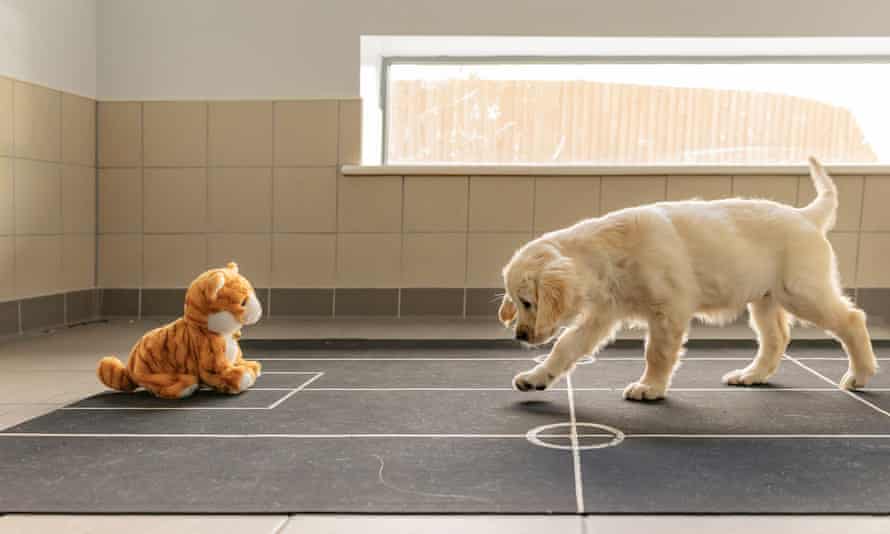
Researchers are hoping to unleash a generation of smarter guide dogs by studying the cognitive behaviour of puppies and finding out who the clever boys and girls really are.
Guide Dogs, the sight loss charity, will analyse the responses of eight-week-old puppies to see which ones best handle surprises, how they interact with human voices and how they react to difficult and sometimes impossible problems.
The results will then be tracked as the dogs mature to work out what makes a good guide dog and the information will be used to improve breeding programmes. The charity is already swabbing animals for DNA samples to help improve the performance of future generations.
“What we’re looking at is how our dogs are able to problem solve,” said Dr Helen Whiteside, chief scientific officer at the £112m-a-year charity. “From the breeding perspective what we might be doing is looking at which aspects of this are heritable … so that we can make sure that we’re keeping those amazing traits that are fantastic within our breeding population.”
The puppies will participate in six tasks, including an unsolvable task during which a closed container with visible food inside is placed in front of the puppy; its responses are monitored and after 30 seconds, the box is opened.
In an odour discrimination activity, a puppy will be presented with two tubes: one with food and one without, which are switched to see if the puppy can determine where the food is.
A surprising events task will involve three different items appearing in an assessment pen: a bin bag containing crumpled paper, an umbrella opening and a metal sheet. The puppy’s reactions are then monitored.
Giving an example of where a guide dog might need to solve a problem, Becky Hunt, canine science associate at the charity, said: “If they’re walking down the street and there’s a car parked on the road and there’s not enough space for both of them to fit through, the dog has to kind of solve that problem. Is it safe to go and walk around that car?”
Sign up to First Edition, our free daily newsletter – every weekday morning at 7am BST
She added: “Essentially, we want to improve our breeding programme, we want to improve what we do, we want to improve supporting our dogs.”
Guide Dogs aims every year to partner 1,000 dogs with people who need them to assist with everyday life. The charity said the activities are designed to be fun and interesting, but if a puppy does not want to engage or shows any signs of being uncomfortable, the task will be stopped.



